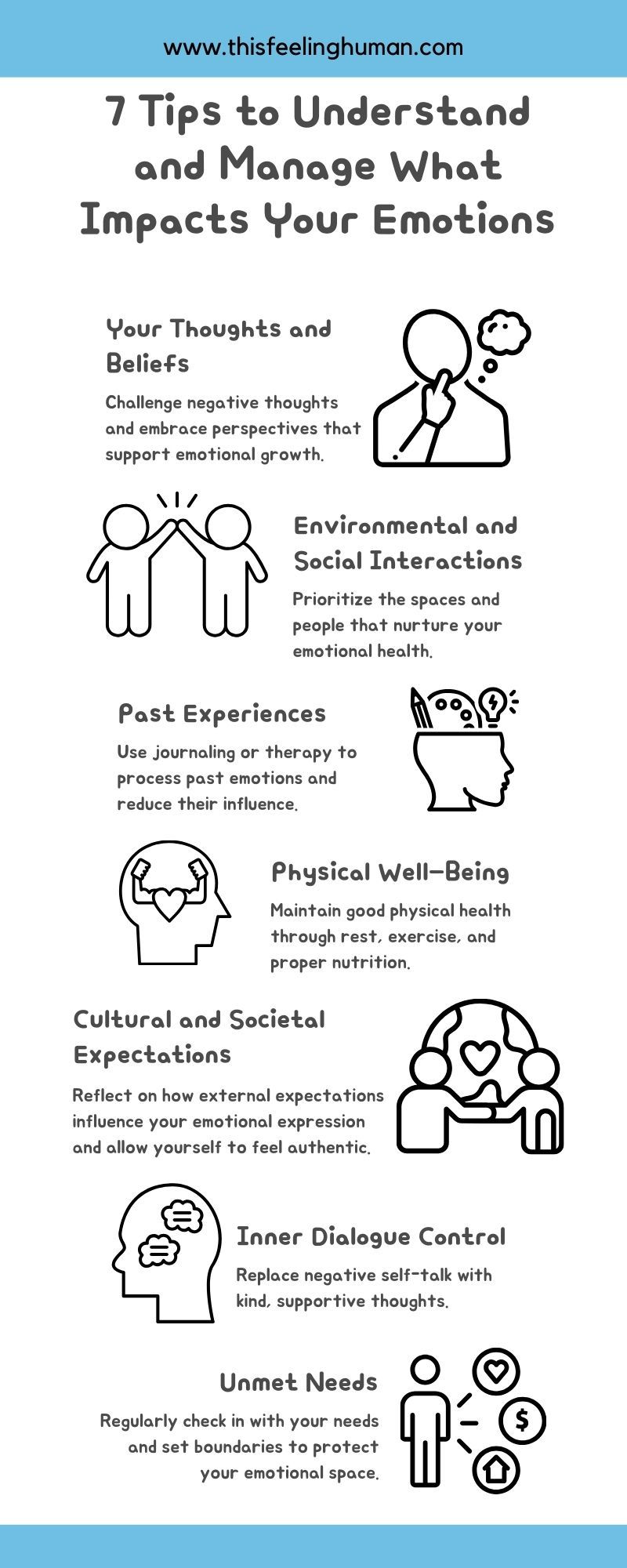How Sleep Impacts Your Mood | Why Getting Enough Rest Is Essential for Emotional Balance
- TFH
- Oct 16, 2024
- 4 min read
We’ve all been there. After a night of tossing and turning, you wake up feeling groggy and irritated. Maybe even the smallest inconvenience—like spilling your coffee or getting stuck in traffic—feels like a disaster. But why does lack of sleep make everything feel worse? The answer lies in how closely linked sleep and mood are.
Today, we'll dive into how sleep (or lack of it) directly affects your mood, your ability to manage emotions, and why prioritizing rest is crucial for maintaining emotional balance.
How Sleep Loss Affects Your Mood

Here are some specific ways lack of sleep can affect your mood and emotional well-being:
Increased Irritability: When sleep-deprived, minor annoyances feel bigger. You’re more likely to snap or feel overwhelmed by small issues.
Heightened Anxiety: Without proper rest, your brain focuses more on worries, increasing stress and anxious thoughts.
Emotional Instability: Sleep helps regulate emotions. When you don’t get enough, mood swings and overreactions become more common.
Low Motivation: Fatigue lowers energy and motivation, making simple tasks feel draining and frustrating.
Less Empathy: Lack of sleep reduces your ability to connect emotionally with others, leading to misunderstandings or conflict.
Sleep Deprivation and Long-Term Mood Issues
If you regularly skimp on sleep, the impact on your mood can go beyond just feeling grumpy. Chronic sleep deprivation has been linked to more serious mood disorders like depression and anxiety. Over time, consistently poor sleep can make you more vulnerable to emotional burnout, irritability, and a general sense of emotional instability.
The Positive Impact of Good Sleep on Your Mood
Now that we’ve covered the downsides, let’s discuss the benefits of getting enough rest. When you’re well-rested, your brain can effectively process emotions, helping you feel more stable, resilient, and in control. A well-rested brain is better at managing emotions. Here’s how enough sleep helps:
Boosts mood: You wake up refreshed, ready to face the day positively.
Increases patience: A rested mind handles stress better, so you’re less irritable.
Improves empathy: You’re more understanding and less likely to snap at loved ones.
Practical Tips for Improving Your Sleep and Mood
If you’ve been skimping on sleep and noticing its impact on your mood, here are a few practical tips to help you improve both:
Stick to a consistent sleep schedule.
Create a calming bedtime routine.
Limit screen time before bed.
Watch caffeine and alcohol intake.
Practice relaxation techniques to manage stress.
What Impacts Your Emotions?
Emotions shape how we experience the world, but many factors contribute to how we feel at any moment. By understanding what impacts your emotions, you can manage them better and improve your emotional well-being. Here are the main influences:

1. Your Thoughts and Beliefs
Your interpretations of events shape your emotions. Negative self-talk or limiting beliefs can lead to feelings like fear or anger, while positive, growth-oriented thinking promotes resilience.
Tip: Challenge negative thoughts and embrace perspectives that support emotional growth.
2. Environment and Social Interactions
Your surroundings and relationships play a role in your emotional state. Stressful environments and toxic relationships can lead to anxiety, while supportive spaces foster happiness.
Tip: Prioritize spaces and people that nurture your emotional health.
3. Past Experiences
Emotional baggage from the past can create triggers that impact your present emotions. Unresolved issues may cause reactions that seem disproportionate to current situations.
Tip: Use journaling or therapy to process past emotions and reduce their influence.
4. Physical Well-Being
Poor health, lack of sleep, or inadequate nutrition can negatively affect your mood, making you more prone to irritability or anxiety.
Tip: Maintain good physical health through rest, exercise, and proper nutrition.
5. Cultural and Societal Expectations
Cultural norms shape how we express and manage emotions, sometimes encouraging emotional suppression or specific responses based on societal rules.
Tip: Reflect on how external expectations influence your emotional expression and allow yourself to feel authentic.
6. Inner Dialogue
How you talk to yourself influences your emotions. Self-compassion fosters resilience, while self-criticism can trigger feelings of guilt or frustration.
Tip: Replace negative self-talk with kind, supportive thoughts.
7. Unmet Needs
When emotional or psychological needs are unmet, it leads to dissatisfaction or frustration. Unclear expectations, whether personal or external, can also trigger disappointment.
Tip: Regularly check in with your needs and set boundaries to protect your emotional space.
Managing Your Emotions
Practice mindfulness to stay present and observe emotions without reacting impulsively.
Develop emotional literacy by identifying and naming emotions to better understand them.
Reflect regularly to uncover emotional patterns and triggers.
Set boundaries to protect your well-being and ensure your needs are met.
Seek support through friends, family, or professionals to process emotions healthily.
Understanding what influences your emotions gives you the power to manage them more effectively, creating a balanced and fulfilling emotional life.
That’s why we developed Emotions-Based Coaching. Using Emoli Cards, we help you uncover the deeper stories behind your emotions, while Calm3D, an immersive tool, supports you in managing your mood. Combined with personalized coaching, we guide you to gain meaningful insights from your emotions, helping you understand yourself better and navigate life's challenges with greater ease.
Conclusion
Your mood and sleep are more connected than you might realize. Whether it’s a lack of patience after a sleepless night or increased irritability after several, sleep plays a critical role in how you feel and react. By prioritizing rest and developing healthy sleep habits, you can improve your emotional resilience, regulate your mood, and set yourself up for more positive days.
So, next time you’re feeling irritable or stressed, take a moment to ask yourself: "Have I been getting enough sleep?" You might find that the solution to better moods is as simple as a few extra hours of rest.
Comments